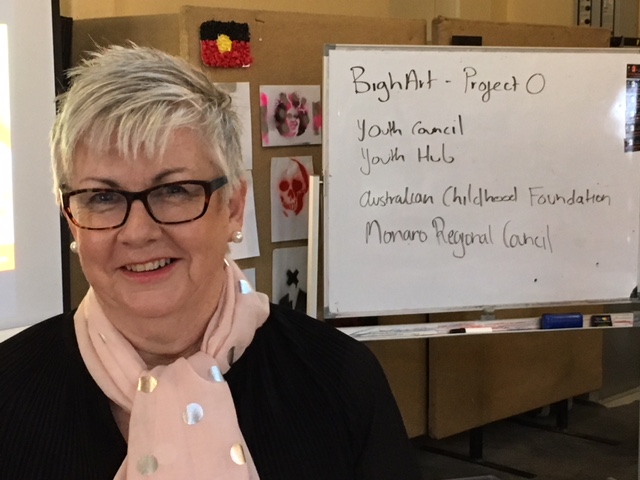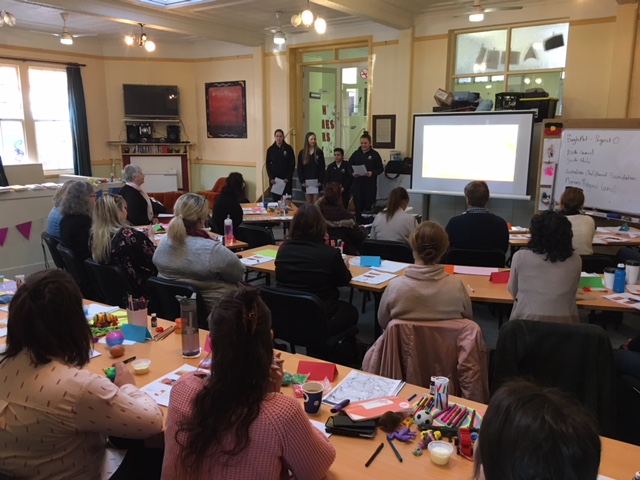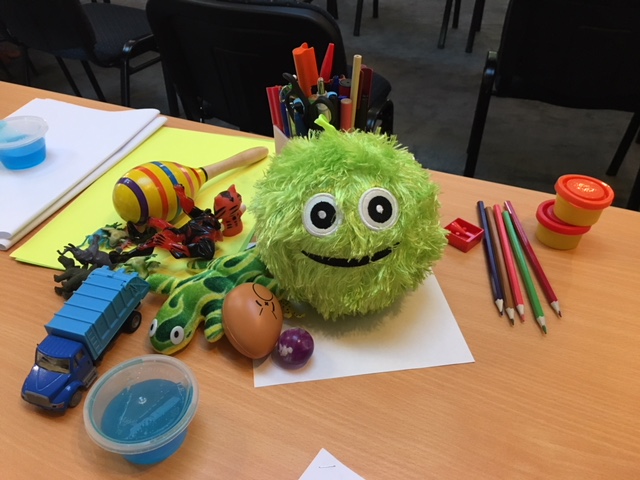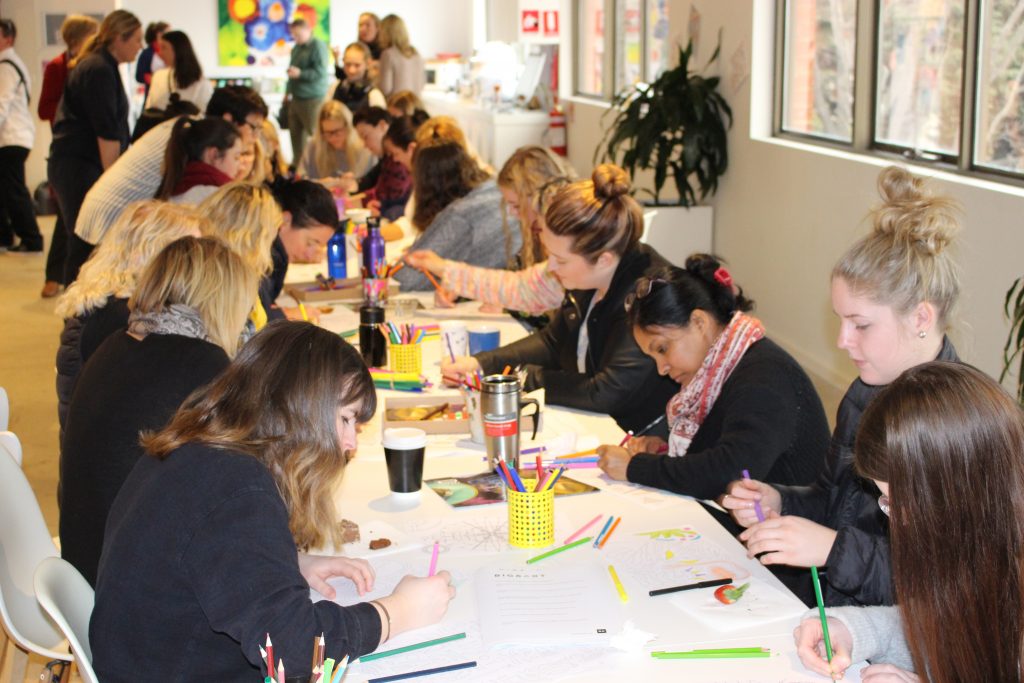
Donna Richards from the Australian Childhood Foundation. Photo: Ian Campbell.
Family and child support workers from across the Snowy Monaro and Bega Valley are now better able to help with childhood trauma thanks to the efforts of Cooma school girls.
The unique two-day workshop at the Cooma Youth Hub was funded by the hard work of young women from Project O, who raised $42,000 last November at a 12-hour art marathon known as a ‘Colourathon’ at the National Gallery of Australia and a number of satellite events through the country.
“We are very proud and excited to see the result of all our hard work coming to fruition”, says Abby, Brooke, Briella, and Teearna from Project O Cooma and students of Monaro High School.
“It is so great to see so many workers from our refuges and support services wanting to learn more about how to help kids in crisis.”

Thirty-five support workers from family services across the Snowy Monaro and Bega Valley took part in the training. Photo: Ian Campbell.
With statistics showing that 1 in 5 Australian women experience family violence and that more than half of women who experience violence have children in their care, there is a critical need for specialised training and support to help these children in crisis.
The Childhood Trauma Training rolled out last week was delivered by The Australian Childhood Foundation (ACF) and focused on the impact trauma has on developing brains, as well as suggesting practical strategies to support healing and repair.
“Our key theme is that children shouldn’t be abused but we are also about love – children need love, and that’s community, that’s families, that’s individuals,” says Donna Richards, ACF Senior Training Consultant.
“One of the things we know is that when children are constantly under threat through family violence, their brain develops in a way that they feel threatened all the time.
“Their thinking brain goes offline, they are not able to concentrate, they are not able to learn.
“But you can repair the brain – it’s amazing to see.”

Fun and colourful tools are part of the training. Photo: Ian Campbell.
The training Ms Richards rolls out will help to provide a safe and calming space for children at refuges, unlocking them from fear, vigilance, and self-blame, and help them make meaning of what has happened to them.
A range of tools including toys, games, craft, and art are deployed to help build and restore relationships and allow a child to express how they are feeling, releasing them from the trauma held in their bodies.
“It’s about how we change the impact, how we heal the impact of trauma,” Ms Richards says.
“We bring joy and create attachment or restore connection and through that children learn to manage their own emotions.
“For instance, hanging upside down on monkey bars has a beautiful calming effect on children which opens doors and the opportunity for communication.”
Ms Richards says the scars of trauma aren’t always the result of abuse or family violence, she says that trauma can be moving house, separating parents, postnatal depression, and car accidents, among other experiences.
“We are seeing that the increasing stress of life is having an impact in utero, on a developing brain, and you have to remember the brain doesn’t fully mature until we are in our late twenties,” she says.
“We are seeing the impact of that early stress in childcare centres and schools.
“Things like language and balance can be impacted, learning can dissipate.”
Those taking part in the training came from services like Katungal, Barnados, YMCA Cooma, Headspace Bega, Monaro Family Support, Eden Childcare Centre, Bandara Children’s Services, Cooma Multicultural Centre, St Patrick’s School Bega, and Cooma and Jindabyne Public Schools.
Questions from the floor highlighted the scope and scale of the situations the region’s family and child support workers are dealing with; “How do we make sure we don’t re-traumatise a child?” “Is complex trauma reversible?” “How do we rewire intergenerational trauma?” “Why do some adults have a delayed response to childhood trauma?” “How do triggers post-trauma work?”
“This training changes lives,” Ms Richards says.

‘Colourations’ held across the country, including this one at Birdsnest Cooma raised $42,000. Photo: Ian Campbell
The Project O fundraising will also allow for training to roll out in Canberra to local women’s shelters and support services on October 17 and 18.
Project O is an initiative of the arts campaigning organisation Big hART. Project O has run across 5 states, where young rural women develop new skills and learn to advocate for change in their community.
It invests in young rural women as change-makers, building resilience, identifying employment pathways, and delivering generational change within communities.
Big hART was founded in Tasmania’s north-west 25 years ago, to date, the organisation has worked in over 50 communities.







